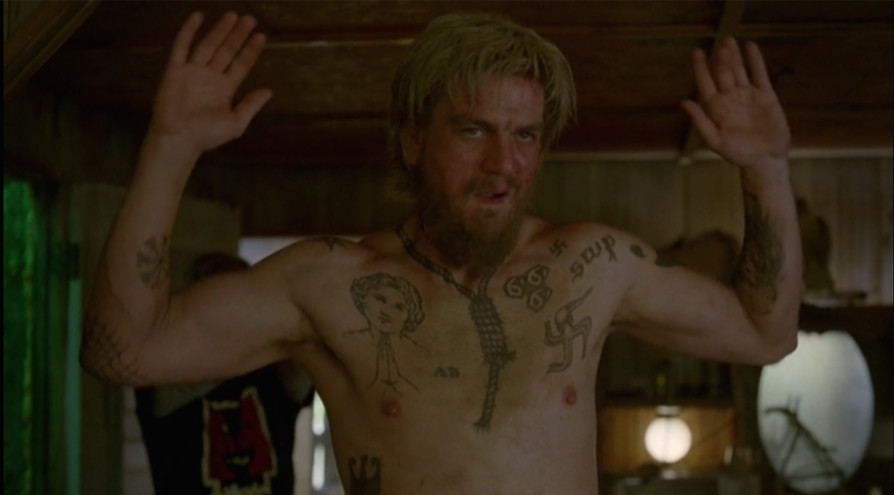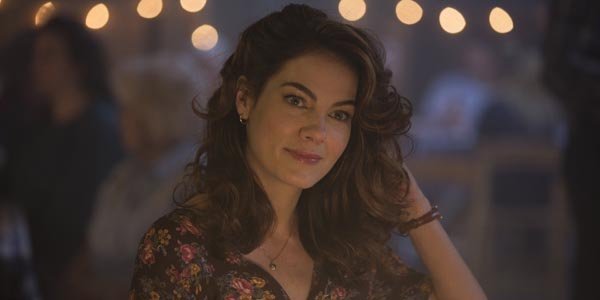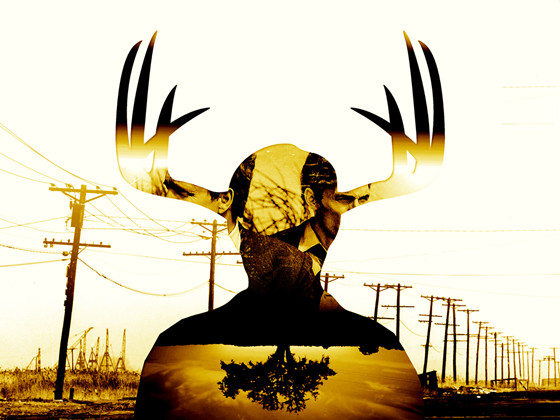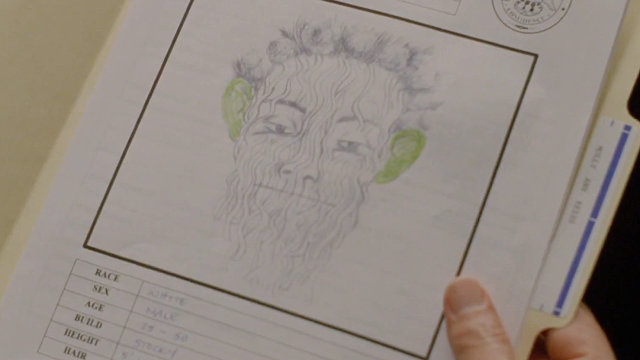In recent years, television has slowly stretched its beautiful, large wings. It’s successfully been proving itself as the new medium for filmmakers to use as their easel. Its “seasons” of episodes generally give writers a more flexible time schedule for character development. A character can be developed over numerous episodes and audiences can see the process take place gradually – something that is difficult to accomplish with a film, which usually borders only on the 1 ½ hour to 2 hour mark.
Breaking Bad – the king of television shows. Mad Men – the revolutionary peak into the 60’s in America. The Wire – a gritty, critically-praised look at the drug underworld. Hannibal – a relatively new, but refreshing production with gloriously delectable visuals. Luther – Britain’s finest detective drama …House of Cards, The Sopranos, Sherlock, Boardwalk Empire, Game of Thrones, The Newsroom, Dexter, Deadwood.
There’s an excruciatingly long list of shows (some weren’t even listed, as the list is just too long) that have shaped television in the past decade. We would be blind not to recognize this as a Golden Age of TV – a new era of televised drama. And now, during this peak of beautifully produced shows, lies perhaps the best of them all – certainly the best mini-series ever produced – HBO’s dark and brooding True Detective.
Presented here are 10 reasons that back that claim.
10. Villains Galore
This is a dark show, with a dark storyline, dark cinematography, and dark characters. Even our protagonists, Marty and Rust, are dark men – Marty with his “marital issues” and PTSD-ridden Rust with his constant pessimism. But when we catch flashes of the numerous villains that lurk just around the corners in True Detective, it is then that we realize we don’t know what dark even is.
Reggie Ledoux – the tattooed, whacked-out, methcreep who “sees people in the stars”. His brother, Jimmy, an equally creepy nutball of a character. Errol, the disturbing, delusional monster of a man. The list goes on with creepy, nasty-looking, Louisiana homeboys. Each villain is demented. Each villain is a killer. Each villain is flat out scary. There’s certainly no shortage of them in the show – thanks to the 17-year-long spanning story.
9. The Commentary on Women
True Detective has recently been under some scrutiny about how the show treats its women characters. For one, the show comes nowhere close to passing what many call the “Bechdel Test,” which humorously asks whether a piece of fiction features two female characters discussing something other than a male character.
In True Detective, many women are presented as either sluts, drug addicts, psychos, or all of the above. Many of the victims of the occult murders in the show are women (if not all the victims). Even our protagonists are prone to giving out steady doses of misogyny – especially Marty. Marty is often upset (sometimes to the point of physical violence) when a woman tries to control his situation. That said, though, Marty’s discontent with women, along with the show’s display of violence towards women, is simply acting as a commentary on society’s general disregard of females.
The show itself is not sexist in the least – but with presenting itself as so, intentionally, it sets the social commentary on a high scale. The fact is, this is a man’s show, set in a man’s world where many men ignore their female counterparts – no matter what the price. Shown in the world of True Detective, ignoring women is one of the causes of much of the horror that occurs. It’s not sexist – it’s the exact opposite.
8. The Guessing Game
If True Detective is anything, it’s a mystery, wrapped in a puzzle, wrapped in an enigma, wrapped in endless riddles. The story, which spans from 1995 to 2012, presents us with such a vast quantity of conundrums that it’s sometimes difficult not to pull out a notepad and start taking extensive notes.
As the story develops, we begin to see the bigger questions in the case that Rust and Marty attempt to unravel: Who is this “Yellow King” mentioned in several interviews the duo has conducted? (Which, with a quick google search of “yellow king,” only prompts us to read “The King in Yellow” by Richard Chambers – which takes us further into the depths of weird-horror fiction.) What is this place, “Carcosa,” we keep hearing about? (Again, a quick google search of “Carcosa” will lead you to a short story by Ambrose Bierce. You’ll also discover that “Carcosa” is mentioned many times in Chambers’ “The King in Yellow”.)
As the episodes continue, we’re confronted with more and more questions – many times prompting us to do a little research of our own if we want to even begin trying to understand all these terms (a truly brilliant ploy by writer NicPizzolatto to get some audience participation in a discreet, indirect manner). In many cases (no pun intended), True Detective is a very disturbing show, but the guessing it leads the audience on with only makes it a more captivating and interactive experience. Viewing a show this unpredictable is actually quite fun – if you’re into guessing games.
7. The Relevance to the Internet Age
True Detective probably wouldn’t be as big of a guessing game as it is had it been released before this “Internet Age” we are currently living in. The show has exploited people’s use of the internet with near-perfect success.When the first episode premiered in January, it presented us with many open-ended questions about Rust and Marty’s case. Such a huge case could involve conspiracy of any kind – and if there’s anything the internet loves, it’s a good conspiracy.
From the premiere of the show, the internet boomed with countless numbers of threads about who the “Yellow King” could be, what “Carcosa” meant, and how it would all tie together. There are literally thousands of threads with theories about the show on the internet right now – and they’re still being used, even after the show is over (and that’s primarily due to how many questions the finale left us with – more on that in a minute).
In a sense, for those who scan sites like Reddit, or even IMDB’s message boards, the show wouldn’t have been as enthralling had it not been for the many, many theories proposed. The internet enhanced the show’s guessing game by a mile.
6. The Finale (Spoiler-Free)
When True Detective’s finale aired it was received with rather mixed reviews. Many positive reviews were from the show’s more die-hard, heavy-thinker fans. Most of the negative counter-arguments were presented by people who appeared to be just flat-out confused by how the whole thing concluded.
The most common complaint seen within the negative reception was that the show left the audience with more questions than answers. That, however, was the show’s point. Leaving the audience with more questions and loose ends makes us go back, retrace our steps in the investigation, and look more carefully into the story. Again, doing a little research on our own. The finale also poses us with a big theme in the show’s barrage of realism: Doesn’t life leave us with more questions than answers all the time?
True Detective’s season finale was an intelligent, realistic ending to a truly brilliant television show. Even if we are left with more questions, we still received a beautiful twinge of optimism – and optimism in the midst of a dark, pessimistic show like True Detective is satisfying enough.





